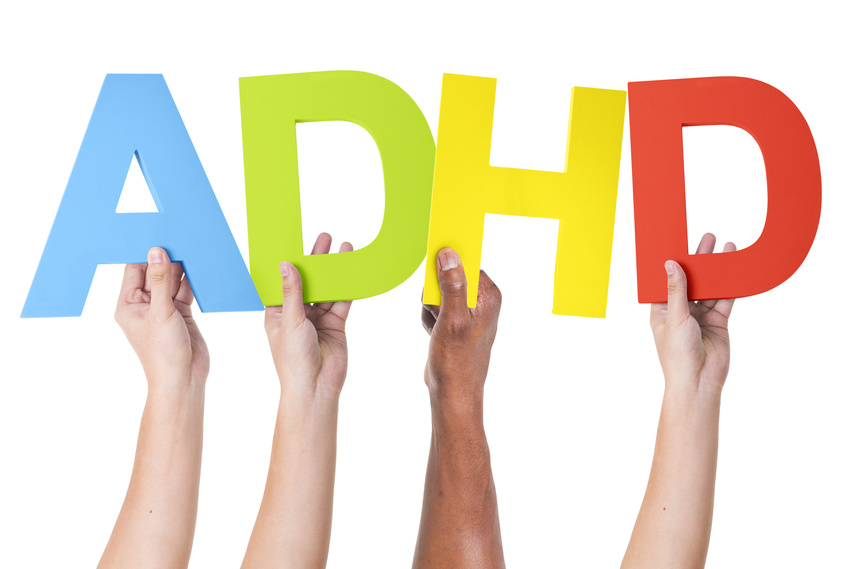
Contributor: Staff at Timberline Knolls Residential Treatment Center
A surprising number of people who have attention-deficit/hyperactivity disorder (ADHD) turn to drugs or alcohol to ease their symptoms. But what might work in the short term can be damaging in the long run, and many end up battling both ADHD and a substance use disorder.
A Temporary Solution for ADHD
Without appropriate treatment, living with ADHD can make life a daily struggle. The symptoms of this condition look different for everyone, but in general, they can make it hard to focus on things like having conversations with friends or finishing tasks at work [1].
If someone doesn’t know that they have ADHD, they may not even realize that they are self-medicating when they use drugs or alcohol. Others may have received an ADHD diagnosis but haven’t sought treatment, so they abuse substances to find relief from their symptoms.
For Beth, now a special education teacher in Fort Wayne, Indiana, drinking alcohol was the only way she knew how to manage her ADHD symptoms when she was in college.
“My mind was so out of control, and drinking would make that go away,” Beth told ADDitude magazine. “I didn’t drink to get smashed but to concentrate and get my homework done” [2].
Call Timberline Knolls for Help 855-630-2865
The restlessness that often comes with ADHD can also make it hard for college students like Beth to sit through class. “The boredom was impossible,” said Beth. “I could be sitting in an interesting lecture and be totally bored. When I drank, I didn’t care that I was bored.”
But abusing substances like alcohol to numb the symptoms of ADHD is only a temporary solution, one that can have devastating consequences.
Addiction & ADHD
Addiction affects a staggering number of people who have ADHD. New research from the University of Toronto found that half of adults ages 20-39 who have ADHD have also struggled with an addiction at some point in their life. That’s a lot compared with the 23.6% of people who have a substance use disorder but don’t have ADHD [3].
And other research supports these findings. The International Collaboration on ADHD and Substance Abuse conducted three studies over ten years. The researchers discovered that about 1 in 6 adults who seek treatment for addiction also have ADHD [4].
Young adults who had ADHD most commonly reported struggling with alcoholism (36%), followed by cannabis addiction (23%) and addictions to illegal drugs (18%). And those who struggled with ADHD were actually three times more likely to develop an addiction to an illegal drug compared with those who didn’t have ADHD [3].
So, if you have ADHD, does that mean that you’re destined to suffer from an addiction? Not necessarily. But it does put you at a higher risk for developing a substance use disorder if you misuse drugs or alcohol.
Getting Appropriate Treatment for Both ADHD and Addiction
Because the symptoms of ADHD can be so disruptive, it’s crucial to get professional treatment. Everyone has different medical histories and backgrounds, so ADHD treatment varies for each person. But, in general, ADHD treatment typically involves a combination of therapy and medication.
 During therapy, you can learn more about ADHD so that you can gain a better understanding of why you’ve been struggling with certain behaviors, feelings, and thoughts. You can also identify any negative thoughts that might be keeping you from living a more productive life, and you can learn healthy ways to manage the symptoms you’ve been experiencing.
During therapy, you can learn more about ADHD so that you can gain a better understanding of why you’ve been struggling with certain behaviors, feelings, and thoughts. You can also identify any negative thoughts that might be keeping you from living a more productive life, and you can learn healthy ways to manage the symptoms you’ve been experiencing.
Stimulants such as Adderall and Ritalin are most commonly prescribed to treat people who have ADHD. Although some worry that taking a stimulant to manage their ADHD symptoms may lead to addiction, research shows that the opposite is the case. A review of 15 studies revealed that using a stimulant medication as part of a person’s ADHD treatment may actually lower their chances of developing an addiction later in life [5].
Medication isn’t right for everyone who has ADHD, but it can be a safe, effective option when taken under the supervision of a medical professional.
For someone who is struggling with ADHD and an addiction, it’s important to get treatment that addresses both conditions. This will ensure that you don’t leave treatment with lingering concerns that can cause long-term harm.
If you think that you might be struggling with ADHD, get a professional evaluation. With appropriate treatment for ADHD, you can live a fuller, more productive life.
References
[1] National Institute of Mental Health. (2021, September). Attention-deficit/hyperactivity disorder. Retrieved January 26, 2022, from https://www.nimh.nih.gov/health/topics/attention-deficit-hyperactivity-disorder-adhd.
[2] Sherman, C. (2022). The truth about ADHD and addiction. ADDitude. Retrieved from https://www.additudemag.com/the-truth-about-adhd-and-addiction/.
[3] Fuller-Thomson, E., Lewis, D., & Agbeyaka, S. (2021). Attention-deficit/hyperactivity disorder and alcohol and other substance use disorders in young adulthood: Findings from a Canadian nationally representative survey, alcohol and alcoholism, Alcohol and Alcoholism, DOI: https://doi.org/10.1093/alcalc/agab048.
[4] Van de Glind, G., Brynte, C., Skutle, A., Kaye, S., Konstenius, M., Levin, F., Mathys, F., Demetrovics, Z., Moggi, F., Ramos-Quiroga, J. A., Schellekens, A., Crunelle, C., Dom, G., van den Brink, W., & Franck, J. (2020). The international collaboration on adhd and substance abuse (ICASA): Mission, results, and future activities. European Addiction Research, 26(4-5), 173–178. DOI: https://doi.org/10.1159/000508870.
[5] Zulauf, C. A., Sprich, S. E., Safren, S. A., & Wilens, T. E. (2014). The complicated relationship between attention-deficit/hyperactivity disorder and substance use disorders. Current Psychiatry Reports, 16(3), 436. DOI: https://doi.org/10.1007/s11920-013-0436-6
About Our Contributor:
 At Timberline Knolls Residential Treatment Center, located outside of Chicago, Illinois, we provide specialized care for women and girls who are living with mental health conditions such as substance use disorders and eating disorders. Our private facility offers female-only treatment programs for eating disorders, addiction, and a range of mental health conditions. We work closely with each person to develop treatment goals to maximize strengths while focusing on individual needs. Our treatment team understands that each woman has unique needs and that she must play a role in her journey to wellness.
At Timberline Knolls Residential Treatment Center, located outside of Chicago, Illinois, we provide specialized care for women and girls who are living with mental health conditions such as substance use disorders and eating disorders. Our private facility offers female-only treatment programs for eating disorders, addiction, and a range of mental health conditions. We work closely with each person to develop treatment goals to maximize strengths while focusing on individual needs. Our treatment team understands that each woman has unique needs and that she must play a role in her journey to wellness.
The opinions and views of our guest contributors are shared to provide a broad perspective of addictions. These are not necessarily the views of Addiction Hope, but an effort to offer a discussion of various issues by different concerned individuals.
We at Addiction Hope understand that addictions result from multiple physical, emotional, environmental, and genetic factors. If you or a loved one are suffering from an addiction, please know that there is hope for you, and seek immediate professional help.
Published on February 3, 2022
Reviewed by Jacquelyn Ekern, MS, LPC on February 3, 2022
Published on AddictionHope.com
